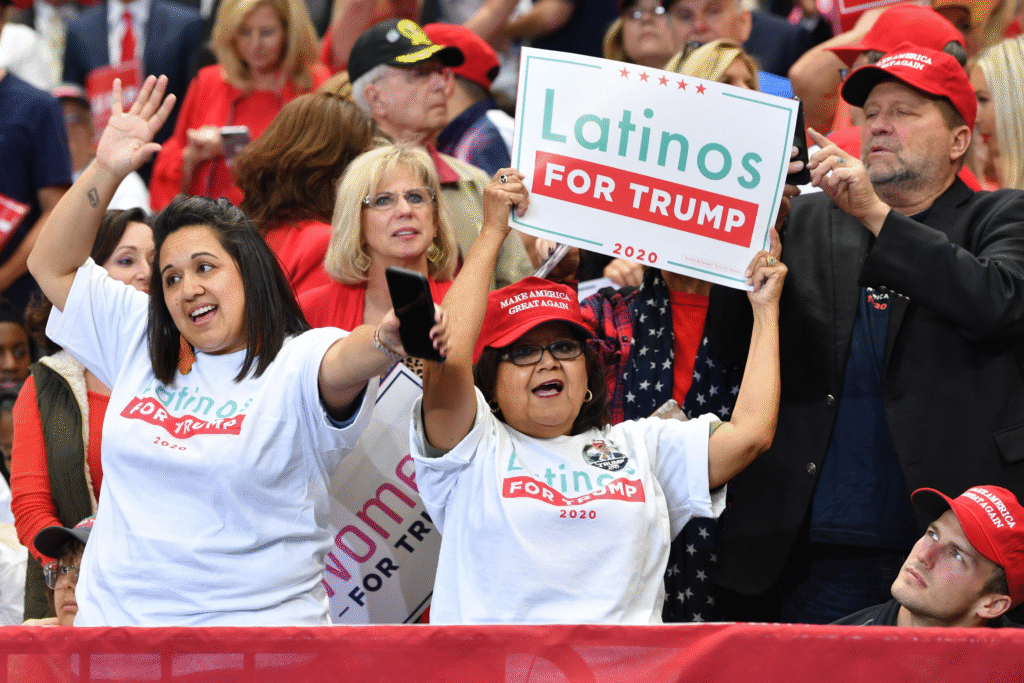vesud As immigration enforcement intensifies under former President Donald Trump’s second term, some Latino voters in South Florida who helped him win key battlegrounds remain loyal but not without reservations.
In the deeply Cuban American city of Hialeah, Trump received overwhelming support during the 2024 election, becoming the first Republican since 1988 to win Miami-Dade County. While many Latino voters still stand by their decision, a growing number are questioning the impact of Trump’s hardline immigration measures on their communities.
Cuban Support Strong, But Immigration Concerns Emerging
Reinerio de la Torre, a 56-year-old Cuban-born electrician, voted for Trump in 2024 but now expresses concern. “He’s going too far with immigration,” he said, referencing recent deportations of non-criminal migrants. Though still hopeful that Trump will keep his broader promises, de la Torre believes policies like the travel restrictions on Cuba are overly broad. “Visas should be judged case by case,” he added.
Patricia, 52, another Hialeah resident, echoed the sentiment. “He’s deporting innocent people… but maybe in the long run it will help,” she said, admitting some disapproval of tariffs as well.
Despite such concerns, around 70% of Cuban Americans in Florida supported Trump, particularly those who favor a tough stance on the Cuban regime. Many applauded Trump’s sanctions, including bans on flights and remittances that targeted the Havana government. But recent changes in immigration law are beginning to test that loyalty.
Policies Affecting Recent Migrants Stir Debate
Since 2022, the U.S. has seen a historic wave of Cuban migration, with over 500,000 Cubans arriving. Many hoped for protection under the longstanding Cuban Adjustment Act or Biden-era temporary programs like CBP One and humanitarian parole. But Trump has rescinded both.
The revocation of these programs has left thousands of Cubans along with Venezuelans, Haitians, and Nicaraguans in legal limbo. Even migrants with no criminal background are being deported, sparking anxiety in communities once considered safely conservative.
Rodrigo Torres, 22, a Venezuelan business owner in Doral, admits the policies are harsh. “There are people being deported for no reason,” he said. “But I’d still choose Trump over [Vice President] Harris.”
Community Reactions Division, Loyalty, and Silence
Even among Venezuelan immigrants arguably among the most affected support for Trump remains high in places like Doral, home to one of his resorts and frequent campaign stops.
Carolina Villalobo, a Venezuelan resident who is not yet a U.S. citizen, says she never supported Trump. “He’s aggressive. Yes, criminals should be deported but not like this,” she said. Still, she remains a minority in her family. “Everyone else in my household still supports him.”
Critics argue that loyalty may be driven more by emotion and ideology than by a close reading of policy outcomes. Democratic strategist Fernand Amandi says many voters are in denial. “I haven’t seen one Trump voter from 2024 say, ‘I regret my vote,’” he said. “What we see instead is rationalization and justification, even as the consequences hit close to home.”
Political Pressure Building Ahead of 2026 Midterms
Democrats are seizing on this tension. A new ad campaign by Keep Them Honest targets Republican Representatives Mario Díaz-Balart, Carlos Giménez, and Maria Elvira Salazar for supporting Trump despite local fallout from his policies.
While Salazar has voiced criticism of some immigration decisions, none of the lawmakers have publicly rebuked the Trump administration. “They feel the pressure,” said Amandi, “but not enough to break rank or confront the White House.”
All three members are scheduled to meet with Homeland Security Secretary Kristi Noem this week a move that some see as damage control ahead of their 2026 re-election bids.
The Path Ahead Loyalty Tested, But Not Broken
As deportations rise and immigration policies tighten, Trump’s Latino base in South Florida is showing signs of internal conflict. Yet, for now, most are not turning away.
For older Cuban Americans like Mirta Marino, the situation is black and white. “Tough decisions have to be made,” said the 78-year-old Mariel boatlift immigrant. “Some people abuse the system. Trump is trying to fix it.”
Her words echo a sentiment still widespread across South Florida that discipline and control, even if painful, are necessary for national stability.
Still, for newer arrivals caught in legal limbo and families separated by evolving immigration laws, the line between support and suffering is getting thinner.
